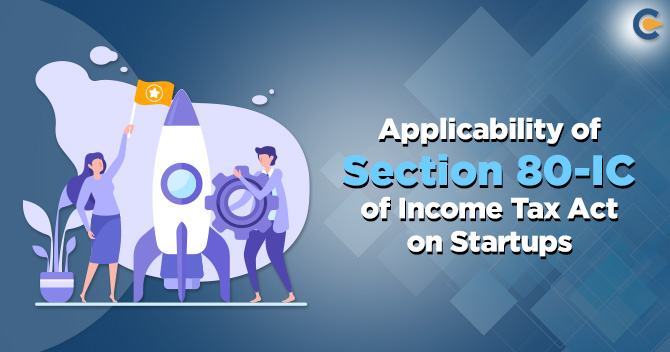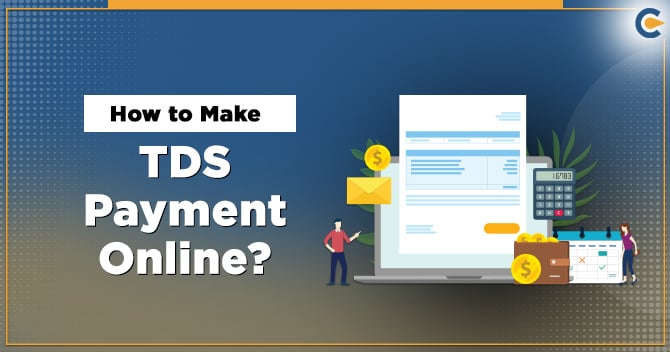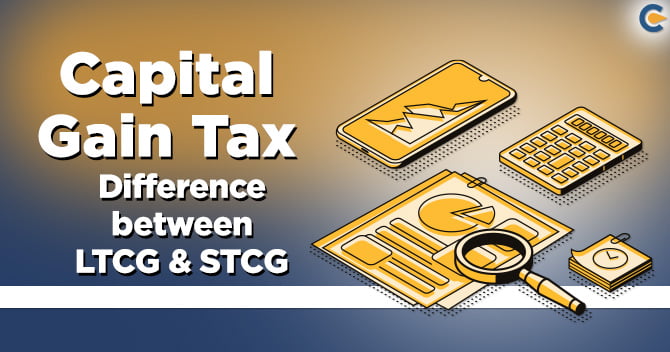Startups or newly incorporated businesses in India have enjoyed numerous benefits and incentives extended by the Government in an endeavor to boost entrepreneurship in the country and enable young businesses, including MSMEs, to sustain themselves, especially during their nascent years. The government schemes and initiatives for startups range from entry relaxations to tax deduction benefits, and one such Applicability of Section 80-IC of Income Tax Act on Startups This blog talks about the applicability of Section 80-IC on startups, the scope of the section, and important concepts and conditions applicable to new business relating to the tax deduction under Section 80-IC.
Section 80-IC of the Income Tax Act
Section 80-IC was introduced by the Finance Act, 2003, and added to the Income Tax Act, 1961[1], under the different Income Tax Deductions available to the taxpayers in India. The provisions of Section 80-IC came into force from Assessment Year 2004-05, with the objective of lifting the economic development and startup growth in certain states in India.
Section 80-IC allows startups registered and operating in the states of Himachal Pradesh, Sikkim Uttarakhand, and the North-Eastern States to claim a tax deduction on their total gross income, inclusive of any profits and gains derived from any undertaking or enterprise which fulfills the applicability conditions laid down in the section.
Meaning of Startup in India
As per the definition and latest changes provided by the Department for Promotion of Industry and Internal Trade, a business will be considered as a startup for all purposes and intents, if it fulfills the following conditions:
- The entity is registered as a Private Limited Company under the Companies Act, 2013, or it is registered as a Partnership Firm under Section 59 of the Partnership Act, 1932, or as a Limited Liability Partnership under the Limited Liability Partnership Act, 2008.
- The annual turnover of the business for any financial year in 10 years of its incorporation or registration, has not crossed the threshold of INR 100 Crore.
- The business is involved in activities that contribute towards innovation, improvement, or development of any products, processes, or services, contribute to employment creation and wealth generation.
However, any business which has been formed by splitting up or reconstructing a business already in existence would not come under the ambit of the term ‘startup’ in India.
Tax Deductions Available Under Section 80-IC to Startups
The following rates of tax deduction are available for startups under Section 80-IC:
- For startups registered in Sikkim and North-Eastern States, 100% deduction is available on profits and gains derived from any undertaking or enterprise for a total period of 10 years. The deduction is available from the year in which the business starts manufacturing, begins its operations, or completes its substantial expansion.
- For the states of Himachal Pradesh and Uttarakhand, the tax deduction under Section 80-IC has been divided into two categories:
- For the five years commencing from the year in which the startup begins its manufacturing process, launches its operations, or finishes its substantial expansion, a tax deduction of 100% of its profits and gains is available.
- For the next five years, a company registered under the Companies Act can avail a deduction of 30%, and all other kinds of startups (Limited Liability Partnership or Partnership Firm) can avail a tax deduction of 25% on their profits and gains derived from any undertaking or enterprise.
The tax deduction available under Section 80-IC, therefore, is only available on any gross income of the business, including any profits or gains derived from the business and not any other gains or profits ‘attributed to’ the business. The same has been clarified by the High Court in 2018, where the court held that the deduction under Section 80-IC is not available on interest income earned on fixed deposits.
The court held that a startup – an undertaking or enterprise is only entitled to avail the benefits of Section 80-IC if it fulfills the eligibility conditions under the section and derives any profits and gains directly from the business it carries.
The court also clarified that an interest income, though attributed to the business, is not derived from the business and is not the same as a business income. Thus, an interest income would not be considered as an income of the industrial undertaking or enterprise for the purposes of Section 80-IC.
Additionally, in 2016, the Supreme Court of India passed a ruling that different kinds of subsidies such as subsidies on transport, power, interest, and insurance would form the part of profit or gain derived from the business and would be eligible for a 100% deduction under Section 80-IC of the Income Tax Act.
Eligibility of Startups for Availing Tax Deduction under Section 80-IC
The tax deductions under Section 80-IC of the Income Tax Act are available to the following startups:
- All undertakings or enterprises which manufacture or have begun to manufacture any articles or things other than those specified in the Thirteenth Schedule of the Act, in industrial zones in India or any area in the applicable States when the business is involved in manufacturing of any articles or things mentioned in the Fourteenth Schedule of the Act, or
- Any undertakings or enterprises which have undertaken substantial expansion in any kind of industrial zone or any region in the states if the business manufactures or has begun manufacturing any articles or things mentioned in the Fourteenth Schedule of the Act.
Further, the tax deduction for startups in the states of Sikkim, Himachal Pradesh, Uttarakhand and any North-Eastern states (i.e., Arunachal Pradesh, Assam, Manipur, Meghalaya, Mizoram, Nagaland, and Tripura) is only applicable if the above-mentioned activities have taken place between the following periods:
- In Sikkim: Period beginning on December 23, 2002, and ending on April 1, 2017.
- In Himachal Pradesh and Uttarakhand: Period beginning on January 7, 2003, and ending on April 1, 2012.
- In the North-Eastern States: Period beginning on December 24, 1997, and ending on April 1, 2017.
Read our article:ITR Rectification – A Complete Guide on How To Rectify ITR Online
Additional Conditions Applicable to Claim Deduction under Section 80-IC
In order to claim the tax deduction available under Section 80-IC of the Indian Income Tax Act, the startup must fulfill the following additional mandatory conditions:
- The startup must not be created by splitting up or reconstructing a business which has already been in existence. However, this condition is not applicable on a business which has been reconstructed or restore because of any damage to the plant, machinery, furniture, or building due to any natural calamity such as cyclone, flood, typhoon; or any man-made calamity such as riots, fire or explosion, or any act by an enemy.
- The startup must not be formed by transferring any machinery or plant which was not utilized earlier for any process. This condition is considered to be fulfilled if the business further satisfies the following conditions:
- The total value of the assets that have been transferred is not more than 20%.
- The plant or machinery that has been transferred was used outside India.
Meaning of Industrial Zones under Section 80-IC
For the purposes of Section 80-IC, the following are considered as industrial zones in India:
- Export Processing Unit
- Integrated Infrastructure Development Centre
- Industrial Growth Centre
- Theme Park
- Software Technology Park
- Industrial Estate
- Industrial Park
- Industrial Area
Two of the most controversial and debated-on topics relating to the tax deductions under Section 80-IC are ‘Initial Assessment Year’ and ‘Substantial Expansion.’ Let’s have a look at the meaning of both these terms and the opinion of India courts on their meaning and applicability.
Meaning of Initial Assessment Year
In order to apply the deductions availed under Section 80-IC, it is important to determine the initial assessment year for the business. As per the section, an Initial Assessment Year means an assessment year which is relevant to the previous year, in which a startup – an undertaking or enterprise has performed any of the following activities:
- The business has begun production activities.
- The startup has launched its business operations.
- The startup has undertaken a substantial expansion of the business.
What is the Meaning of Substantial Expansion?
Under Section 80-IC, Substantial Expansion has been defined as an increase by the startup in its investment in the plant and machinery used by a minimum of 50% of the total book value of the plant and machinery of the business.
This value is calculated before taking the asset depreciation on the plant and machinery in any year, and as on the commencement day of the previous year in which the substantial expansion of the startup took place.
Indian Courts on Initial Assessment Year and Substantial Expansion
- One of the landmark cases related to Section 80-IC, the 2018 case of Commission of Income Tax vs. M/S Classic Binding Industries, has led to multiple debates on the applicability of 100% deductions and calculation of initial assessment year.
In this case, the Apex Court was posed with the question whether an assessee that has established a new industry on which Section 80-IC is applicable, and avails 100% tax exemption on its profits, can claim the tax exemption even after the period of five years when the substantial expansion of its manufacturing unit was done after the five-year period.
The Supreme Court bench of Justice A.K. Sikri and Justice Ashok Bhushan took the view that a 100% tax deduction cannot be availed by an assessee under Section 80-IC of the Income Tax Act, if the substantial expansion of the business was carried out after five years.
The court further viewed that a startup cannot have two initial assessment years within the period of 10 years of its commencement, and therefore, it was entitled to claim an exemption of 100% on the grounds of its substantial expansion.
The court’s order led to severe disappointment in the startup community in the applicable states, which relied on Section 80-IC to claim some relief for the early years of their business activities. However, the Supreme Court was later informed of the mistake it made in interpreting the term ‘initial assessment year,’ and the court rectified its order.
In the Classic Binding Industries case, the Supreme Court overlooked the definition of ‘initial assessment year’ laid down under Section 80-IC and based its ruling on the definition on term laid down under Section 80-IB, which does not apply to the businesses covered under Section 80-IC.
The court further clarified that when the substantial expansion of a startup (an undertaking or enterprise) is undertaken within the period of 10 years, the previous year is considered as the ‘initial assessment year’ for the business, and therefore, the business would be eligible to claim a 100% tax deduction under Section 80-IC on its profits and gains.
Additionally, the court held that the deduction would only be available for a maximum period of 10 years. In case the business carries out its substantial expansion in the 7th year, it would be entitled to claim a 100% deduction for the first five years, 25% (except for a company, which can claim 30%) in the 6th year and a 100% deduction again from the 7th year.
- The same was held in Pr. CIT VS. Virgo Industries (2019) by the Punjab and Haryana High Court. In the case, the assessee claimed a 100% tax deduction in its 8th year of operations on the grounds of substantial expansion.
The Punjab and Haryana High Court accepted the assessee’s claim and held the deduction under Section 80-IC of the Indian Income Tax Act, 1961 at a rate of 100% instead of 25% for 8th year based on substantial expansion of the undertaking is legitimate and is not equivalent to false information submitted by the assessee with regards to the provisions of Section 271(1)(c) of the Income Tax Act.
- In another case of PCIT vs. AarhamSoftronics (2019), the Supreme Court was asked to decide whether an assessee can claim a deduction of 100% from their profits for another five years after undertaking a substantial expansion, when it has already claimed a 100% deduction in the first five years of its business.
The Apex Court held that business was entitled to claim a 100% deduction if it carried out substantial expansion after five years of its initial assessment year. A startup will only be prevented from claiming a 100% deduction after five years and would be entitled to claim only 25% if it has no business activities, and its manufacturing unit is dormant.
Conclusion
Section 80-IC of the Indian Income Tax Act, 1961, was introduced as an effort to bring in more investors to invest in startups operating in the states of Himachal Pradesh, Uttarakhand, Sikkim, and the North-Eastern states, increase industrial operations and boost economic development in these regions.
Section 80-IC has enabled startups operating in these states to claim some tax relief during their initial years and allowed them to expand their operations without worrying about tax liabilities on the same while claiming a 100% tax exemption on the profits and gains earned during its first ten years of operation. Similar to numerous government initiatives and policies, Section 80-C is a progressive step that supports the Startup India Initiative fostered by the Government of India.
Read our article: Taxability for Co-operative Societies: A Complete Outlook on Annual Returns











